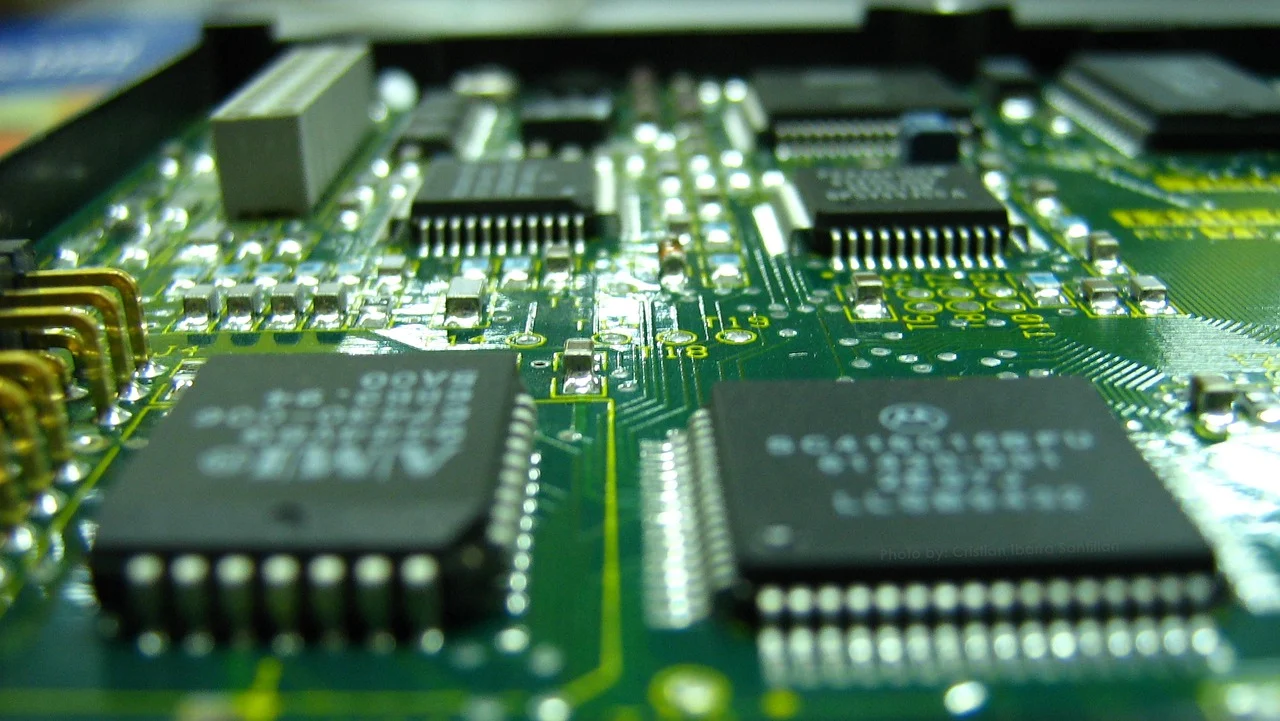Mobile AI: Tech Giants Meta and Qualcomm Partner to Empower Smartphones and PCs with Advanced AI Capabilities
In an exciting partnership, tech giants Meta and Qualcomm have joined forces to bring advanced artificial intelligence (AI) capabilities to smartphones and PCs. The collaboration aims to enable the deployment of Meta’s new large language model (LLM), Llama 2, on Qualcomm’s Snapdragon chips, revolutionizing on-device AI processing.
Historically, LLMs like Llama 2 have predominantly relied on large server farms and high-powered graphics processors, such as Nvidia’s, due to their demanding computational requirements. However, Qualcomm’s strategic move signals its intent to position its processors as ideal for on-device AI applications rather than relying solely on cloud-based solutions.

Reducing Costs and Unlocking New Possibilities: Llama 2 and Qualcomm’s Advancements in On-Device AI Processing
By running Llama 2 directly on smartphones and PCs, the cost associated with operating AI models in extensive data centers could potentially be significantly reduced. This breakthrough could pave the way for better and faster voice assistants, intelligent virtual assistants, and other AI-driven applications, offering users enhanced functionality and performance.

One key advantage of Qualcomm’s chips lies in their dedicated tensor processor unit (TPU), which is specifically optimized for the intricate calculations required by AI models. It’s worth noting that while the processing power of mobile devices is currently limited compared to cutting-edge GPUs found in data centers, Qualcomm’s advancements in on-device AI processing showcase their commitment to pushing the boundaries.
What sets Meta’s Llama 2 apart is its open-source nature?
Meta has made the AI model’s “weights” publicly available, empowering researchers and future commercial entities to leverage Llama 2 on their own computers without constraints or licensing fees. This stands in contrast to other closed-source LLMs like OpenAI’s ChatGPT-4 and Google’s Bard, which tightly guard their weight information.
Expanding the Frontiers of AI: Qualcomm and Meta Collaborate to Bring Llama 2 to Mobile Devices
The partnership between Qualcomm and Meta builds upon their previous collaborations, particularly in the development of chips for Meta’s virtual reality devices. Qualcomm has already showcased the performance of AI models, including the open-source image generator Stable Diffusion, on its chips, albeit at a slower pace.
The integration of Llama 2 onto Qualcomm chips signifies a significant leap forward in expanding the reach of AI capabilities to mobile devices. With Qualcomm’s expertise in processors and Meta’s open-source approach, this collaboration holds the potential to reshape the landscape of AI applications, delivering improved functionality, and personalized experiences to users.

Starting in 2024, Qualcomm has outlined its roadmap to introduce the implementation of Llama 2-based generative AI on devices powered by Snapdragon chips.Developers can begin optimizing applications for on-device AI using Qualcomm’s AI Stack, a suite of tools designed to process AI more efficiently on Snapdragon, even in small and lightweight devices.
Advancing AI Accessibility and Innovation: Meta’s Llama 2 and Qualcomm Transform On-Device Processing
Meta’s Llama 2, trained on an extensive dataset 40% larger than its predecessor, has already garnered attention for its collaboration with Microsoft to provide free access to commercial and research users on Azure services. The availability of Llama 2 for local download and execution on Windows PCs further underscores Meta’s commitment to advancing AI accessibility and innovation.
The partnership between Meta and Qualcomm ushers in a new era of on-device AI processing, empowering developers, enhancing user privacy, and opening doors to groundbreaking AI applications across smartphones, PCs, VR/AR headsets, and vehicles. As AI continues to evolve, this collaboration sets the stage for remarkable advancements in mobile technology.

CONCLUSION
In conclusion, the partnership between Meta and Qualcomm represents a significant milestone in the field of AI and mobile technology. By bringing Meta’s Llama 2 large language model to Qualcomm’s Snapdragon chips, on-device AI processing is set to become a reality, revolutionizing the way we interact with our smartphones and PCs.
The collaboration addresses the limitations of cloud-based AI solutions by enabling Llama 2 to run directly on devices. This not only reduces costs associated with running AI models in large data centers but also promises better performance, increased privacy, and personalized experiences for users.
Qualcomm’s expertise in processors, coupled with Meta’s open-source approach, creates new possibilities for developers to harness the power of AI and create innovative applications across various domains. By making Llama 2 accessible and free for research and commercial use, Meta paves the way for widespread adoption and collaboration in the AI community.
As Qualcomm prepares to support Llama 2-based AI services on Snapdragon-powered devices starting in 2024, the stage is set for a transformative shift in the capabilities of voice assistants, virtual assistants, and other AI-driven applications. This collaboration not only empowers developers but also propels the evolution of on-device AI processing, unlocking new frontiers in mobile technology.

In the near future, we can expect smartphones and PCs to deliver enhanced AI experiences, thanks to the powerful combination of Meta’s advanced language models and Qualcomm’s cutting-edge processors. With AI running “on the edge,” the potential for faster, more reliable, and personalized AI applications becomes a tangible reality.
The Meta and Qualcomm partnership not only showcases the progress made in AI but also highlights the importance of collaboration and innovation in shaping the future of technology. As we embark on this transformative journey, the possibilities of AI on mobile devices are limitless, promising to redefine how we interact with and benefit from AI in our daily lives.
Thanks for Reading from Roshbytes and for latest trending news and updates follow us.




